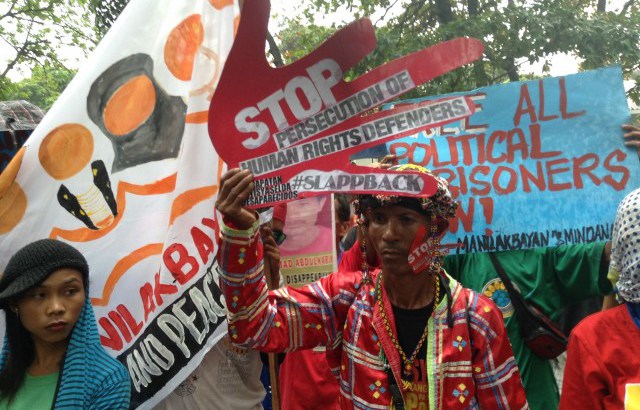On 6 May 2016, 64-year-old Talaandig indigenous leader Datu Mansulbadan Lalinan was shot dead in the remote area of Katigbaw, Talacogon, in Agusan del Sur province, on Mindanao island, in the Philippines.
Datu Mansulbadan had been the political, economic and spiritual chief of the Lumad community. When he was the leader – or datu –, he would have to solve the major problems faced by the community. As a problem solver, he was named “Mansulbadan” which means the solver.
He was allegedly killed by two brothers affiliated with the Dela Mance paramilitary group that has been terrorizing neighbouring provinces of Mindalao Island. Two other Talaandig indigenous people: Jun ‘Obet’ Pabiana, third-grade student Jonathan ‘Olaking’ Olinan was killed in September 2015, and Datu Mankombete Mariano in October 2015.
Due to threats and a climate of fear, indigenous families had been evacuating the region. Datu Mansulbadan and a number of families had opted to stay in the community to take care of the farms and animals left by community members in exodus.
At the time, worried church groups in the Philippines called for « swift justice » for several tribal people killed in Mindanao and for the disbandment of government-sponsored paramilitary groups. According to Sister Famita Somogod of the Rural Missionaries of the Philippines, “Tribal people who would dare question the intrusion of companies in their ancestral lands are summarily executed”, adding that the attacks on tribal communities were a result of people’s opposition to mining activities in the area.
Datu Mansulbadan was married with nine children.
